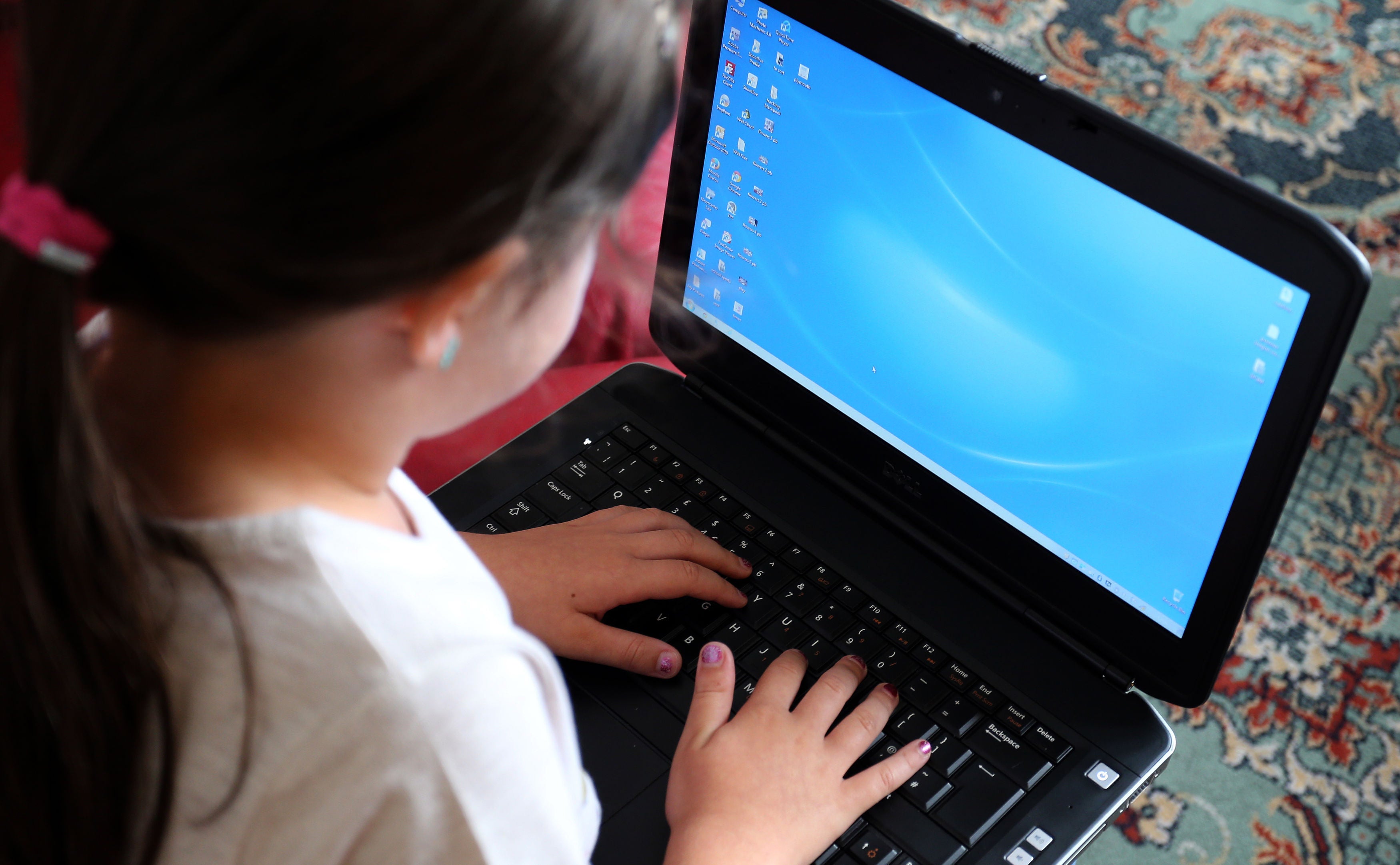Rise in screen time for children during pandemic sparks health fears
Experts found switching between devices increased strain on eyes by 22 per cent, Emily Atkinson reports

Health experts have expressed concern that an increase in screen time for children over the course of the Covid-19 pandemic could pose significant risks to their eyesight and general health.
A new study led by vision experts at Anglia Ruskin University (ARU) found that a rise in digital screen usage due to the move to online learning during lockdowns was linked to several conditions.
The paper, published by the Journal of School Health, focused on risks to vision. It found among those associated with the use of digital devices were eye strain, unstable binocular vision (using both eyes adequately to create a single visual image), uncorrected refractive error and dry eyes.
A point of particular concern to researchers was children and adolescents using several devices at once. An example of this might be browsing social media on a phone, while working or watching videos on a laptop screen.
They found that switching between devices increased the strain on the eye by 22 per cent, since it requires the user to switch distances between different devices, forcing the eyes to adjust.
With the pandemic came the move to online learning and a significantly pared-back social life. As a result, children’s screen time soared, the research found, putting them at risk of developing a number of eye and general health problems.
In Canada, 89 per cent of parents admitted their children were exceeding the two-hour daily guidelines set by the country’s health authorities, while in Germany, screen time increased by approximately one hour a day.
In Chile, a study found screen time among toddlers and pre-school children had almost doubled to more than three hours per day.
“We have been very fortunate that children have been able to use technology to fill in for the absence of in-person teaching during the pandemic,” co-author of the study Dr Robin Driscoll said. “However, we must be aware of the risks to their physical health as a result of this increased screen time.
“Through increasing awareness of the risks associated with high levels of digital screen use and sharing strategies to reduce the negative effects, teachers and parents should be encouraged to enhance the health and wellbeing of children and adolescents in the pandemic and beyond.”
The study also noted that a number of general health problems could be caused by increased device usage.
Neck and shoulder strain are commonly associated with extensive screen time and researchers pointed out that this type of injury increases the amount of time spent sedentary - a lifestyle associated with overeating - which could, in turn, lead to health issues such as obesity.
Lead author Professor Shahina Pardhan, director of the vision and eye research unit at Anglia Ruskin University (ARU), said: “It is really important to be aware of the potential risks to children’s short and long-term eye and general health. It is essential that devices are used appropriately and that activities away from digital devices are encouraged, such as playing outdoors.
“Schools can make sure time spent on digital devices is maximised for learning and less digital time is encouraged for other activities. Governments should work with schools to help shape home-based learning guidelines that encourage creative learning away from devices, including promoting other types of activities and frequent screen breaks.”
Join our commenting forum
Join thought-provoking conversations, follow other Independent readers and see their replies
Comments
Bookmark popover
Removed from bookmarks